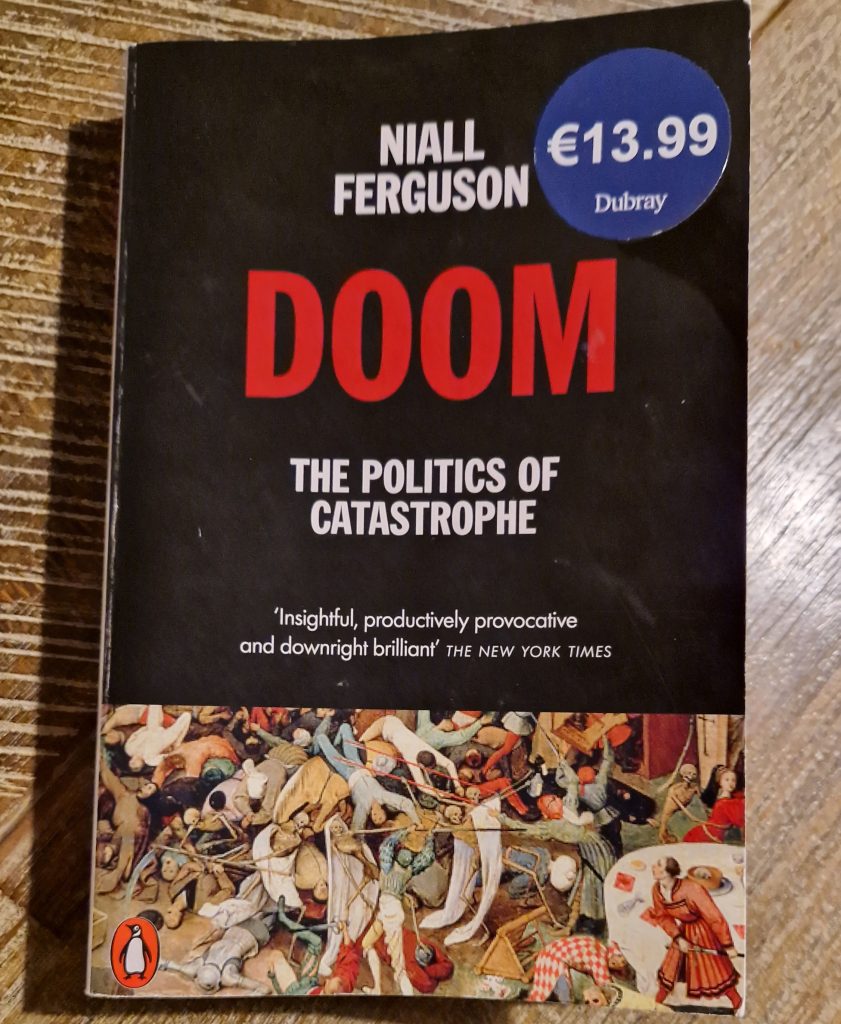
As I complete reading this book from Niall Ferguson, the topic of the Pandemic is front of mind as I’ve just been to my local pharmacy to get my latest Covid vaccine booster. This followed on from an SMS message from the HSE (our national health service in Ireland). I’m conscious how fortunate I am (and all of us) to be able to receive this inoculation and enable us to continue to live normal lives. I commented to the pharmacist that we shouldn’t take the vaccine for granted. We both agreed that while the pandemic (looking back from our autumn 2023 perspective) now seems like a dream, society shouldn’t forget the lessons learned nor the heavy price paid by those most vulnerable.
A few years ago I read another book from Ferguson – The House of Rothschild – Money’s Prophets. It dealt with the history of the Rothschild banking dynasty. At the time, I was impressed with the breadth of topics he could cover in European history with insights into the degree of antisemitism that far pre-existed that in Weimar Germany.
In Doom – The Politics of Catastrophe the topics covered are similarly broad – including Roman and medieval history, astronomical phenomena, geology and climate change, superpower rivalry, war and famine. Ferguson explores the similarities between natural and “man-made” disasters and probes why, for example, some countries fared far better through the early stages of the COVID-19 pandemic than others and why the political landscape of different countries may have been a key factor.
While reading the book, I took the time to listen to David McWilliams’ excellent podcast interview with Ferguson on Spotify: The politics of catastrophe with Niall Ferguson.
Key chapters of the book focus on countries’ responses to the COVID-19 pandemic as it emerged. In particular, the discussion and comparison between the approaches taken by China and the United States was fascinating. While, many of these chapters were written towards the autumn of 2020, before the ‘second wave’ of Covid, there are still valuable lessons to be learned from them. We can’t be sure that we won’t see another pandemic in our lifetime. If we do, I’d recommend that public health and political decision makers pick up a copy of Doom to help them inform their decisions.
A very good read.
